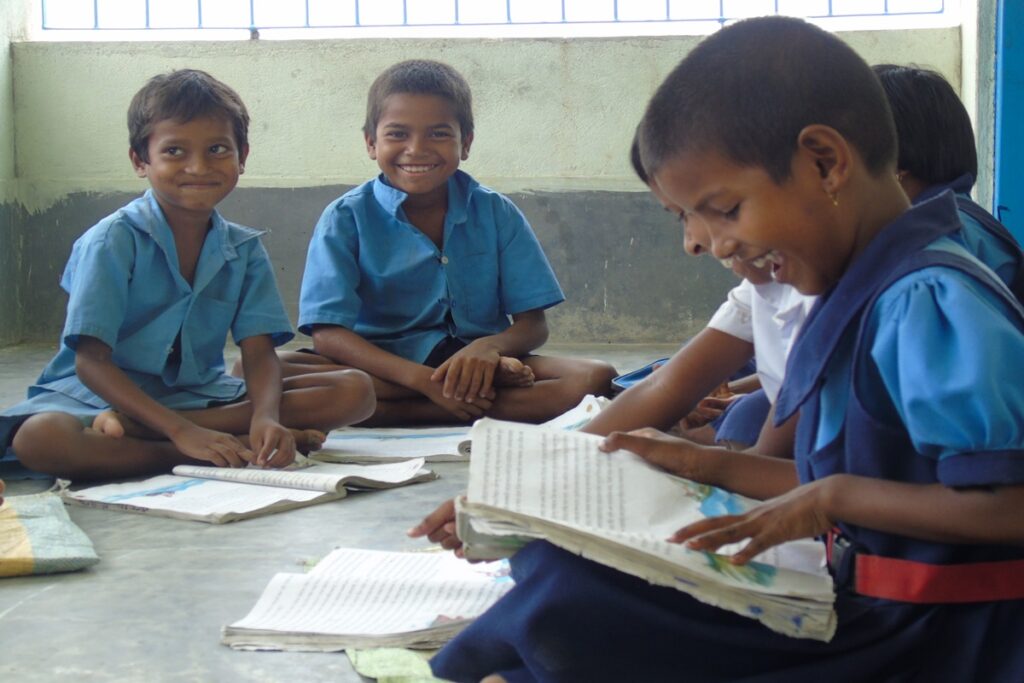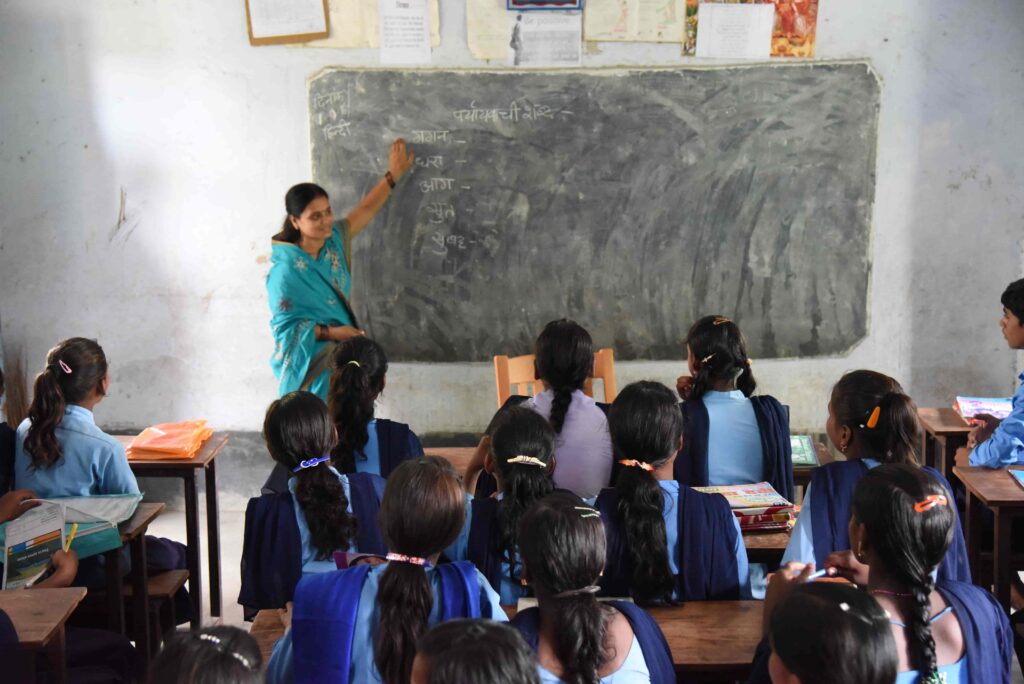
Meaningful Ways to Donate & Support Children This Christmas
Christmas is the season of joy, celebration, and togetherness. It’s also a time to reflect on the spirit of giving and share our blessings with tho....
Read MoreIndia is experiencing a positive shift in how daughters are perceived, aided by government initiatives aimed at improving their education and financial security. Key Government Schemes for Girl Child include the Sukanya Samriddhi Yojana (SSY), which offers an attractive interest rate of 8.2% per annum for savings towards girls' education and marriage, alongside the Beti Bachao Beti Padhao initiative that works to change societal attitudes about girl children. Other important programs are the CBSE Udaan Scheme, promoting female participation in engineering, and the Balika Samridhi Yojana, which provides financial support for girls from impoverished backgrounds. Additionally, state-level programs like Ladli Lakshmi Yojana and Mukhyamantri Kanya Sumangala Yojana further enhance financial assistance for education and empowerment. Collectively, these initiatives are improving female literacy and promoting gender equality. CRY India also plays a crucial role in extending support beyond government schemes, focusing on access to education and safeguarding against child marriage. Overall, these progressive efforts are transforming the landscape for girls in India, providing them with opportunities for a brighter future.

India has witnessed a remarkable transformation in how society views and values its daughters. The mindset toward daughters in India is gradually shifting for the better — and government initiatives are helping accelerate this change. Today, the Government of India has introduced numerous progressive schemes that not only celebrate the girl child but also provide substantial financial security and educational opportunities. If you’re a parent looking to secure your daughter’s future, this comprehensive guide will walk you through the most beneficial government schemes for girl children available in 2024–25.
Before diving into the specific schemes, it’s important to understand why these initiatives are game-changers for millions of Indian families.
According to the latest government data (as of November 2024), over 4.1 crore accounts have been opened under the Sukanya Samriddhi Yojana (SSY) — reflecting the growing awareness and participation across the nation.
These government schemes for girl address critical issues like female literacy, gender discrimination, and financial independence, while giving parents peace of mind about their daughters’ education and marriage expenses.
If there’s one scheme every parent should know about, it’s the Sukanya Samriddhi Yojana. Launched under the Beti Bachao Beti Padhao campaign, this small savings scheme has become the most popular financial instrument for girl children across India.
The scheme currently offers an attractive interest rate of 8.2% per annum, compounded annually — significantly higher than most Fixed Deposits and PPF accounts. It also provides triple tax benefits under Section 80C of the Income Tax Act. Estimated maturity values are based on current interest rates and may vary as rates are reviewed quarterly.
Example: If you invest ₹1 lakh every year, after 21 years, your maturity amount could reach approximately ₹47.88 lakh — a solid nest egg for your daughter’s education or marriage!
Parents can withdraw 50% of the balance for higher education once the girl turns 18, while the full amount becomes available when she turns 21.
More than just a scheme, Beti Bachao Beti Padhao is a social movement that’s reshaping India’s attitude toward girl children.
Launched on January 22, 2015, by Prime Minister Narendra Modi in Panipat, Haryana, this campaign addresses the declining child sex ratio, promotes girls’ education, and prevents gender-based discrimination. While BBBP itself does not provide financial benefits to individuals, it drives policy action and awareness that support girls’ education and protection.
Though primarily an awareness campaign, BBBP works in tandem with SSY and other programs to deliver financial and social empowerment. Several states have since reported improved sex ratios and rising female literacy rates.
The CBSE Udaan Scheme is specifically designed to increase female participation in engineering and technical education.
This initiative has helped thousands of bright young girls crack competitive exams, proving that financial constraints should never limit potential. While the earlier phases of Udaan supported girls, the scheme structure is being revised; parents should confirm current availability through CBSE notifications.
This pioneering scheme targets girls born into families living below the poverty line (BPL), providing financial assistance from birth through education milestones.
This step-by-step support ensures that families do not face financial barriers to education, helping to reduce dropout rates among girls. This scheme is implemented only in selected districts through state nodal agencies.
While central schemes form the backbone, several state governments have introduced their own successful programs.
Implemented in Madhya Pradesh, Delhi, Goa, and other states, this scheme deposits ₹6,000 annually into a girl’s account for five consecutive years after registration.
When the girl turns 21, completes Class 12, and remains unmarried before 18, she receives ₹1 lakh for higher education or marriage — totaling benefits of ₹1,18,000.
Launched in October 2019, this flagship UP scheme provides financial assistance of up to ₹25,000 (FY 2024–25) in six installments — from birth through graduation.
Many parents wonder which scheme to choose — but you don’t need to limit yourself to just one!
This multi-scheme strategy ensures both short-term and long-term empowerment.
Visit your nearest post office or authorized bank with:
Go to the respective state government portals or local administrative offices.
Most schemes now support online applications, making it convenient for parents across India.
These schemes aren’t just government plans — they are changing real lives.
From rural India, where girls now pursue higher education thanks to SSY funds, to urban centers where Udaan scholars crack top-tier engineering exams — the transformation is visible and inspiring.
Collectively, these initiatives have helped improve female literacy, education access, and financial independence across the country.
Also Read: Protein Energy Malnutrition
At CRY – Child Rights and You, we believe every girl deserves equal opportunities to learn, grow, and dream freely.
Through our Girls’ Education Initiative, CRY works to ensure that every girl child has access to quality education, protection from child marriage and child labour, and the support needed to stay in school.
Our projects across India address critical issues like:
When you support CRY, you help bridge the gap between policy and real change — turning government initiatives into life-changing realities for India’s daughters.
Learn more or get involved: Support Girl Child Education
As we progress through 2024–25, the government continues to strengthen these programs. With increased digital accessibility and community awareness, more families are participating than ever before.
These government schemes for girls are not just about financial support — they represent India’s commitment to gender equality and empowerment.
Also Read: Importance of Physical Education